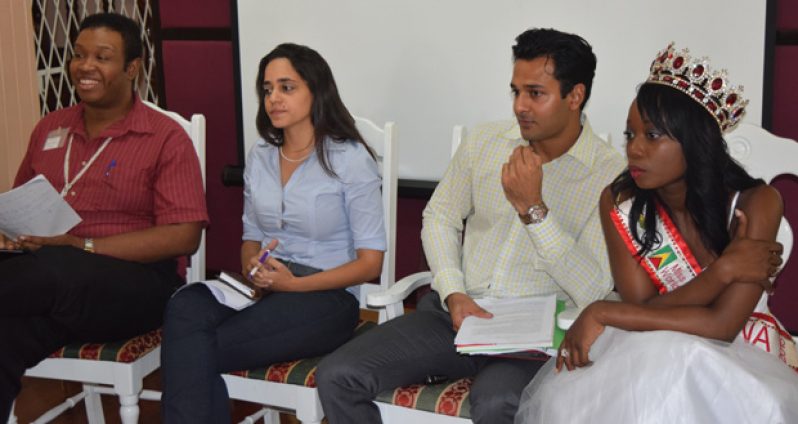By Ravin Singh
A GLOBAL research has revealed that persons who consider themselves part of the Lesbian, Gay, Bisexual and Transgender (LGBT) community are two to three times more likely to commit suicide that heterosexual persons, says Cuso International’s Mental Health Researcher, Abdel Fudadin. Canada-based Cuso International is a development organisation that works to reduce poverty and inequality through the efforts of highly skilled volunteers, collaborative partnerships and compassionate donors.
Fudadin made this disclosure on Thursday last, at a forum on Mental Health Challenges facing LGBT Guyanese, which was facilitated by the Society Against Sexual Orientation Discrimination (SASOD) in partnership with USAID’s Advancing Partners and Communities (APC) Project.
According to SASOD, the forum sought to evaluate with various civil society organisations (CSOs), ways and means the Guyanese society can aid vulnerable communities such as LGBT persons from falling into mental despair and how support can be offered to them.
Presently, Guyana is the only country in South America where same-sex intimacy is still illegal. Under the laws of Guyana, intimate same-sex acts carry a possible punishment of life imprisonment.
And given that fact, persons who consider themselves part of the LGBT community are often marginalised from society, discriminated against and shunned from accessing health, social and security services.
But this adds to some underlying issues such as social anxiety, conservative and religious views and impoverished neighbourhoods, which serve to weaken their mental health, SASOD contends. Depression, Obsessive Compulsive Disorder and anxiety can develop along with post-traumatic stress, which only makes the person more susceptible to substance abuse, risky behaviour, and suicide.
Having acknowledged these conditions, Fudadin underscored the role of social support, counselling and mental-health care for this vulnerable group. He noted that reports have revealed that effeminate boys and teenagers who identify themselves as homosexuals are shunned by their parents and even “kicked out of their homes,” due to their parents’ lack of knowledge, understanding and general ignorance of sexuality.
More often than not, these youngsters suffer from neglect, abandonment – finding themselves in sex-work rings, crime, narcotic-drug circles, often leading to other risky behaviours, HIV and other sexually-transmitted infections, which all contribute to their mental- health deterioration, Fudadin said, adding that “it is a stark reality that happens every day in Guyana.”
“Health, education and advocacy needs to be strengthened. It is what we need to do, to work together; not let religious homophobes and conservatives cloud our progress as a society,” Fudadin charged the attendees.
He also pointed out that in this day and age, the University of Guyana (UG) medical students are exposed to only 20 hours of mental- health sensitivity training which is, in his estimation, inadequate. In the light of this, he also called for massive training in information management, noting that there is a shortage of and lack of access to data on mental health in Guyana.
He also contended that there is a lack of standardised screening assessment tools in public health institutions. The current system, he noted, is a basic cross- examination of family history, personal history, medical evaluations and looking at risk factors in their environments, such as causes for depression.
And although there is a development project for creating a standard screening assessment tool, Fudadin is of the belief that more needs to be done, not only for medical practitioners but Community Support Organisations (CSOs) that will be offering guidance counselling, referrals and services to their clients.
If you or anyone you know are experiencing suicidal thoughts, speak to a family member or leader in your community or call the suicide helpline on Telephone numbers (+592) 223-0001, 223-0009, 600-7896, 623-4444. Text-messaging and “call me” features are also available as alternative options for persons who need support.
LGBT people among most vulnerable to suicide
SHARE THIS ARTICLE :
Facebook
Twitter
WhatsApp



.png)









